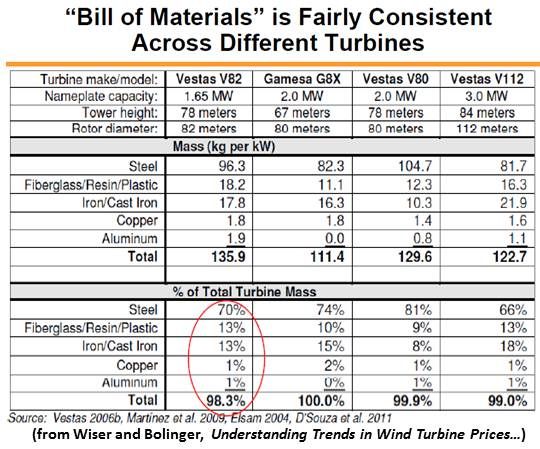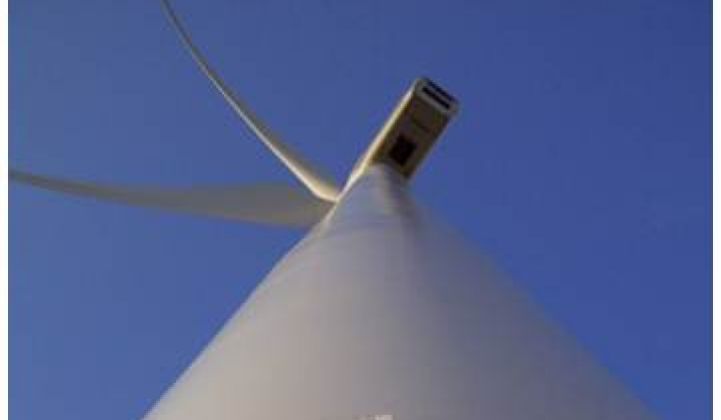On the heels of accusations that the Chinese government is subsidizing its solar panel manufacturers so they can sell at below-market prices in the U.S., the U.S.-based Wind Tower Trade Coalition (WTTC) petitioned the U.S. Department of Commerce (DOC) and the International Trade Commission (ITC) to investigate Chinese and Vietnamese tower makers for similar practices.
“The Chinese government has targeted the clean energy industries -- a variety of clean energy industries -- with massive subsidies that have distorted the marketplace,” said Attorney Alan H. Price of WTTC counsel Wiley Rein LLP in an interview with GTM, following up on the news of the WTTC petitions. The Wiley Rein law firm is also representing the coalition of solar panel manufacturers that is asking the DOC and the ITC for investigation and redress.
“The subsidies are well documented,” Price added. They can be found, he said, in official government documents, including China’s most recent five-year plans.
Price explained that Wiley Rein calculated “dumping margins of 64.37 percent for China and 59.11 percent for Vietnam,” and that these figures were obtained using standard DOC methodologies.
“What those numbers mean,” Price explained, “is that duties of those amounts would have to be added so that the towers from China and Vietnam would be sold at fairly traded prices.” The DOC and ITC investigations, Price said, will determine actual margins that may be higher or lower.
Both the solar and wind tower manufacturers say the dumping and other allegedly unfair trade practices are compromising the U.S. industries and tens of thousands of U.S. jobs.
Because these are ongoing legal matters, Price was unwilling to be forthcoming about many details that will eventually emerge. He would, for instance, not distinguish between complaints of dumping and unfair trade practices against the Chinese and Vietnamese governments.
_540_449_80.jpg)
Those two governments do not seem to share the same impression of the petitions. An article from VietnamNet quoted Vietnam Association of Mechanical Industry Chair Nguyen Van Thu saying the petitions were filed after Vietnam-based UBI won a $14 million “international contract” to provide towers.
A China Daily story quoted Chinese Wind Energy Association Vice President Shi Pengfei’s claim that "China doesn't export a large number of wind turbines to the United States, so the petition will not have much effect."
Making towers “doesn't require much technology,” Shi was also quoted as saying, while Thu reportedly said, “I really feel surprised when such a precision engineering product with very high quality could become the target of an anti-dumping lawsuit.”
A similar complaint was brought in 2010 against China by the U.S. Trade Representative on behalf of the United Steelworkers and wind industry manufacturers at the World Trade Organization. It resulted in China withdrawing the damaging subsidy.
The scope of the WTTC petitions appears to be much broader. On the other hand, they probably barely scratch the surface of the areas where pricing of Chinese products, manufactured without consideration of the kind of quality standards common in the U.S., without labor regulations and in the absence of environmental protections, undercut U.S. price points. The actual breadth of China’s problematic trade practices can perhaps best be estimated by the $270 billion trade deficit the U.S. has with China.
An often-mentioned concern about Chinese-manufactured products involves the use of inferior steel. It has been widely reported in the media that China imports steel rejected as inadequate by U.S. manufacturers. There is every possibility such steel could find its way back to the U.S. in wind turbine towers.

“The only thing that will make this right will be the end of dumping and subsidy use,” Price said, “or macro changes. The administration has just launched a task force to deal with the panoply of unfair trade practices that China is engaged in. This is a fundamental issue the U.S. has to come to grips with.”
The WTTC petitions, according to a Wiley Rein statement, ask the DOC and the WTC for “significant remedial duties on Chinese and Vietnamese imports of utility-scale wind towers.” Such retaliatory import tariffs, however, would be dangerous because they would threaten to kick off a full-scale trade war.
On the other hand, people familiar with doing business in China say the likelihood of a change of heart there is remote. “They don’t think that way,” one businessman told GTM, speaking of the possibility of the government voluntarily reeling in its subsidies or stepping in to block its manufacturers from dumping.
While lower-priced products are helping drive down the levelized costs of electricity in the solar and wind energy industries, lower-priced, inferior goods often lead to bigger problems and higher costs in the long run. BP's offshore oil drilling operations is a good example. As a well-known folk aphorism frames it, “The cheapest way to go is first class.”
The wind tower coalition petitions and the Wiley Rein petitions on behalf of solar panel makers represent crucial efforts to find common ground in due process. However, whether there is common ground to be found remains to be seen.
The DOC and the ITC are expected to begin anti-dumping and countervailing duty investigations by mid-January. The ITC's preliminary determinations should come in February 2012. Price said he might have more to say about the case at that time.
The DOC’s preliminary determinations will take about six months. Final determinations are expected in nine to 13 months.



